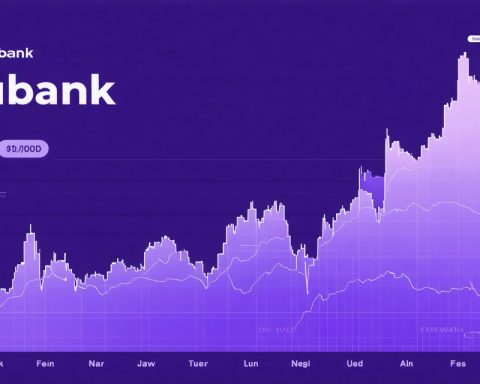- 50-year mortgages are increasingly popular among Generation Z, driven by higher interest rates and a desire for early homeownership.
- Applications for these ultra-long-term loans, known as “Flat 50” mortgages, have more than doubled in the past year.
- Benefits include lower monthly payments, allowing buyers to invest in other areas and foster financial stability.
- Nearly 40% of applicants for these mortgages are under 30, highlighting strong Gen Z interest.
- Financial institutions like Sumitomo Mitsui and Rakuten Banks are rapidly adopting these longer loan periods.
- The trade-off comes with increased total repayment costs due to heightened interest over time.
- Choosing the right mortgage requires balancing short-term affordability with long-term financial health.
A shift is rippling through the modern housing market, capturing the imaginations of young buyers: the rise of the 50-year mortgage. As interest rates awaken from their decades-long slumber, this unexpected financial tool is becoming a strategic ally for the savvy youngsters of Generation Z.
More than ever, these young adults are snapping up ultra-long-term loans, with applications for the “Flat 50” mortgage more than doubling over the past year. The lure? Affordable monthly payments and the dream of early homeownership without the strain of astronomical monthly costs.
Visualize a young man of 28, standing on the threshold of adulthood and responsibility, a future father contemplating his family’s financial security nestled within the bustling folds of Saitama. He taps into this 50-year mortgage, envisioning growth. The reduced monthly repayment means extra cash to channel into long-term investments and the assurance of family stability—a compelling proposition when one’s mind races toward future children and evolving life plans.
Among the applicants for these extended financial commitments, nearly 40% are under 30, a statistic exemplified by the rapid expansion of Gen Z interest. Financial institutions, notably nimble entities like Sumitomo Mitsui and Rakuten Banks, have rushed to embrace these longer loan periods, sensing the demand storm gathering strength.
While these loans offer potential relief in the short term, they come with a caveat: increased overall repayment costs borne from heightened interest over time. The challenge, as financial advisors suggest, is choosing a mortgage plan that harmonizes with one’s life ambitions—an exercise in balancing immediate benefits with long-term fiscal health.
Ultimately, the 50-year mortgage emerges not merely as an option but a strategic decision-point—key to understanding the broader financial narrative Gen Z adults are scripting for themselves.
Why the 50-Year Mortgage is Reshaping Homeownership for Gen Z
How-To Steps & Life Hacks
1. Evaluate Financial Goals: Before opting for a 50-year mortgage, assess your long-term financial goals. Consider whether lower monthly payments and potential investment opportunities outweigh the higher overall interest.
2. Consult Financial Advisors: Engage with a financial advisor to understand the implications on your financial health and future planning.
3. Explore Other Options: Always compare with other mortgage products like 30-year fixed mortgages or variable-rate mortgages that might offer better terms over the long run.
4. Budget for Regular Prepayments: Allocate extra funds for prepayments whenever possible to reduce the principal and interest burden over time.
Real-World Use Cases
– Early Home Ownership: Many young adults are using 50-year mortgages to buy homes earlier in life, freeing up cash for investments or emergency savings.
– Investment Opportunities: With smaller monthly mortgage payments, individuals invest in stocks or retirement funds, potentially growing wealth in parallel.
Market Forecasts & Industry Trends
The trend of 50-year mortgages is likely to grow as interest rates fluctuate. As seen with financial institutions like Sumitomo Mitsui and Rakuten Banks, there is a pronounced shift towards accommodating longer loan periods.
Reviews & Comparisons
While the 50-year mortgage allows for reduced monthly payments, it results in increased total repayment. A Bankrate comparison indicates that a standard 30-year mortgage often provides more favorable long-term financial outcomes despite higher monthly costs.
Controversies & Limitations
– Increased Lifetime Interest Costs: Extended loan terms result in higher overall interest payments, making the 50-year mortgage more costly in the long haul.
– Equity Accumulation: With slower equity growth compared to shorter-term loans, sellers may find themselves with less home value leverage in the future.
Features, Specs & Pricing
Typical 50-year mortgages offer lower monthly payments, introducing financial flexibility but often include higher interest rates due to the extended loan period. They are primarily available through select financial institutions rather than mass-market offerings.
Security & Sustainability
These mortgages may contribute to housing stability by enabling young buyers to enter the market affordably. However, the risk of financial strain increases if interest rates rise or personal incomes fluctuate unpredictably.
Insights & Predictions
The appeal to Gen Z will likely persist, with the potential for new financing models emerging that cater to the flexible job histories and financial planning priorities unique to this demographic.
Pros & Cons Overview
Pros:
– Lower Monthly Payments
– Opportunities for Investment
– Early Homeownership
Cons:
– Higher Overall Interest Costs
– Slower Equity Growth
– Larger Long-term Financial Commitment
Conclusion
For young people eyeing immediate homeownership, the 50-year mortgage could serve as a viable option. However, to maximize financial freedom while avoiding debt traps, they should consider these actionable recommendations:
– Prioritize Flexibility: Opt for a loan with prepayment privileges.
– Diversify Investments: Use savings from lower payments to diversify into high-return investments.
– Regularly Review Financial Health: Periodic financial reviews can ensure alignment with life goals and changing market conditions.
For further exploration of mortgage options and financial planning, you may visit sites like NerdWallet.








